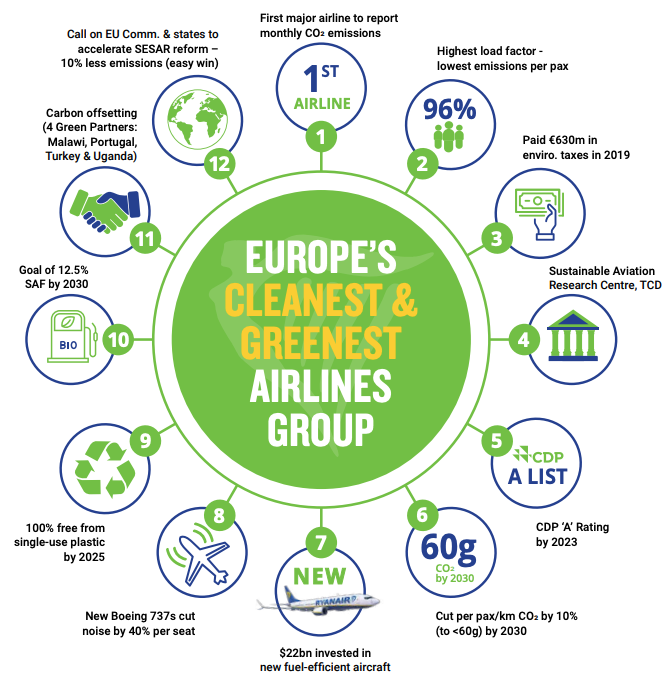How Thomas Fowler is taking Ryanair towards net zero via "Aviation with Purpose" and more
"More needs to be done at the European and national levels to incentivise the production of SAF. The additional production of SAF and greater availability of raw materials are needed to support mechanisms that can cover additional costs for products brought to market." - Thomas Fowler, Director of Sustainability and Finance at Ryanair
For the longest time, Ryanair, Europe’s largest airline by passenger numbers, has been known for flying millions of passengers at rock-bottom prices. In the last couple of years, however, the airline has made a conscious effort to change the narrative and present itself as “the greenest and cleanest airline in Europe”.
Ryanair’s sustainability efforts are defined as “Aviation with Purpose” in its most recent sustainability report. While the airline says it is committed to growing annual traffic from 149m to 225m customers annually over the next 5 years, it insists that this planned growth will be accompanied by lower costs of air travel and reduced environmental impact.
At the centre of Ryanair’s sustainability strategy is the following plan: cutting CO2 emissions per passenger/km by 10% over the next decade; use 12.5% SAF fleet-wide by 2030; and to be plastic-free on board within the next 4 years. Most importantly, at the heart of Ryanair’s environmental strategy is their $22bn investment in new ‘Gamechanger’ aircraft which will reportedly deliver more seats per flight with more leg room for improved comfort, yet burn 16% less fuel and reduce noise emissions by up to 40%.
Meet the Changemaker
Thomas Fowler is Director Of Sustainability and Finance at Ryanair, where he has worked for over 15 years. For the last three years, Thomas has been leading Ryanair’s sustainability initiatives.
When it comes to sustainability, Thomas is quick to get right to the point. He believes two things are needed at the EU and national levels to support the aviation industry’s net zero ambition.
The first is that more needs to be done to incentivise the production of SAF.
“The additional production of SAF and greater availability of raw materials are needed to support mechanisms that can cover additional costs for products brought to market. Similar incentives have been introduced in the US and since then we have seen the US overtaking the EU in SAF production efforts”, he says with a touch of disappointment.
The second thing is the immediate introduction of the Single European Sky initiative that aims to increase the efficiency of air traffic management and air navigation services by reducing the fragmentation of European airspace. Thomas believes this alone will help reduce the emissions generated by the aviation industry by up to 10%, by removing unnecessary route changes and the imposition of longer flight times.
Read the rest of the interview with Thomas Fowler in our report, “Flying to Net Zero”.




